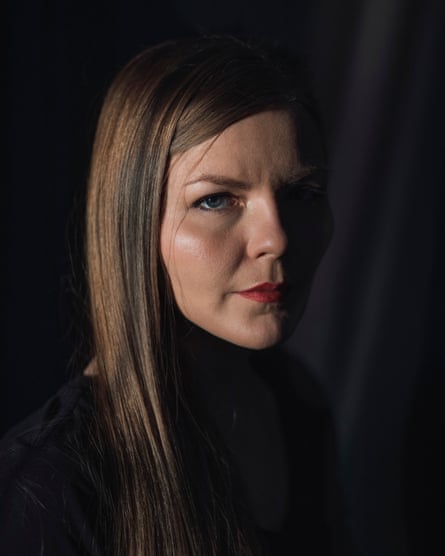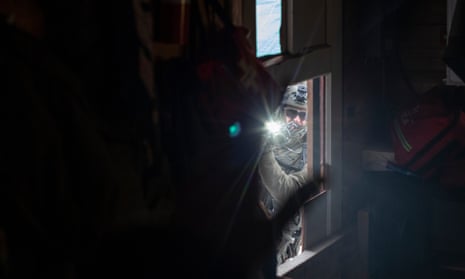A Canadian environmental publication has announced plans to sue the Royal Canadian Mounted Police (RCMP), arguing it violated the rights of a photojournalist after she was arrested and detained while on the job.
The lawsuit, if successful, could have significant implications for Canadian journalists reporting in areas where police try to limit both public and media access.
In 2021, award-winning photojournalist Amber Bracken, who has previously worked with the Guardian, was arrested during a police raid on a protest camp in British Columbia. She was detained for three days before she was released.
Police were enforcing a court-ordered injunction against demonstrators, more than a dozen of whom were also arrested.
Bracken was on assignment at the time for the Narwhal, and editors with the environmental publication had previously notified police that Bracken was reporting in the area. She was provided with a letter of assignment and had identification tags on her cameras.
On Monday, the Narwhal announced it was suing the police for damages for Bracken’s wrongful arrest, wrongful detention and a violation of her constitutional rights.
“Amber’s arrest is seared into my memory. The text informing me that she had been arrested. The late-night phone calls with lawyers, the sense of helplessness as Amber was inexplicably held in jail for three days,” Carol Linnitt, co-founder of the Narwhal, told reporters in Vancouver. “Until now, Canadian police forces haven’t had to face real consequences for their infringements on press freedom. But that stops today.”

In 2019, a Canadian court in Newfoundland and Labrador recognized that injunction orders do not apply to journalists working in the field.
But even though Bracken told police of the precedent, none appeared aware of the rights of media.
Speaking to reporters, Bracken revisited the moments leading up to her arrest.
“A police dog barked and whined as officers broke in the door with an axe and then a chainsaw to arrest the people inside. In that moment, I was both trembling and absolutely rooted in place. I was determined not to let this moment go unreported,” she said. She took hundreds of photos, many of which were published in newspapers across the country.
“I felt kidnapped. I have never been arrested before. And it’s the best word I can think of to describe being taken so abruptly from my life and from my work and in violation of my Charter rights.”
Bracken said she kept waiting for the police to “realize their mistake” but instead, she was kept overnight.
A month later after her arrest, Coastal GasLink dropped the civil contempt charges against Bracken and Michael Toledano, a documentary film-maker who was also arrested.
“While Coastal GasLink has ongoing concerns with respect to the fairness and approach of these individuals, we do not believe, in this situation, further civil court actions are merited,” TC Energy, who owns and operates Coastal GasLink, said in a statement at the time.
Bracken was documenting simmering tensions over the 670km Coastal GasLink pipeline, a controversial project that would transport natural gas from the north-eastern part of British Columbia to a facility in Kitimat.
The Canadian Association of Journalists (CAJ) has argued the arrest left “many questions unresolved”, including the relationship between the media and the police in exclusion zones – areas where the public is prohibited during police action.
“I don’t know if it’s blissful ignorance, or just a blatant disregard for the law. But we want to make sure law enforcement understands this is the role of journalists: they’re not there as sort of an inconvenient troublemaker. They’re there to document events and to support the public’s right to know and to bear witness,” CAJ’s president, Brent Jolly, told the Guardian. “Despite all the efforts of law enforcement to criminalize journalism over the past several years, journalism isn’t a crime.”
Bracken told reporters she has returned to the region to photograph, but wanted her case to help ensure police were aware of the rights of media.
“As a journalist, I never wanted to be the story. But the police took that decision for me when they finally made it impossible for me to do my job,” she said. “That day I stood my ground to report. Today we are standing up to hopefully prevent such an arrest and the resulting chill on reporting from ever happening again.”
In a statement, a spokesperson for the RCMP’s British Columbia division said: “At this time we are currently seeking clarity to determine whether the RCMP has been served with the Notice of Civil Claim.
“The RCMP is however aware of the claim, but, as we are subject to it and the court process, it would be inappropriate for us to comment. Once served, the Department of Justice will review and a statement of defence for the RCMP will be issued through the appropriate court process.”
